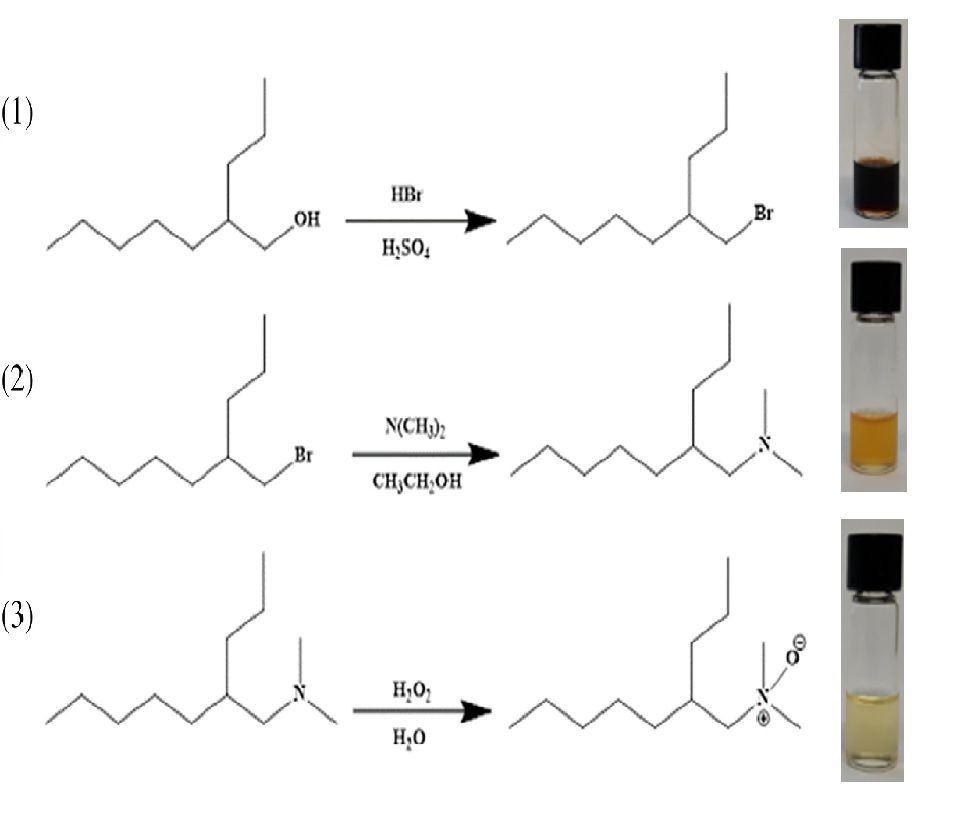Synthesis, Surface Properties, and Self-Aggregation Behavior of a Branched N,N-Dimethylalkylamine Oxide Surfactant
Fabozzi, A., Vitiello, R., Russo Krauss, I., Iuliano, M., De Tommaso, G., Amoresano, A., Pinto, G., Paduano, L., Jones, C., Di Serio, M., D’Errico, G
Journal of Surfactants and Detergents, 2019, 22(1), pp. 115–124 https://doi.org/10.1002/jsde.12205
Abstract
Amine‐oxide surfactants have emerged as highly stable, nontoxic, and cost‐effective constituents of detergent formulations, specifically as wetting agents and foam boosters. With the aim of enhancing their functional behavior, a new member of this family, N,N‐dimethyl‐2‐propylheptan‐1‐amine oxide, bearing a branched alkyl tail (C10DAO‐branched) was synthesized and purified using a simple and easily scalable strategy starting from 2‐propylheptan‐1‐ol. 2D‐nuclear magnetic resonance (NMR) and mass spectrometry confirm the obtainment of the desired product in high yield and purity. The protonation behavior of the branched surfactant is not affected by alkyl tail branching, as shown by potentiometric titrations. In contrast, surface activity and aggregation behavior of C10DAO‐branched is dramatically different from that of the linear analog N,N‐dimethyldecyl‐1‐amine oxide (C10DAO‐linear), in that it occupies a higher area at the solution interface and aggregates at much higher concentration, forming larger aggregates, as detected using tensiometry and dynamic light scattering (DLS), respectively. Aggregation behavior of C10DAO‐branched is less sensitive to pH variations. Foaming tests show that C10DAO‐branched is a more effective foam booster than its linear analog, in both acidic and basic solutions. The experimental results indicate that the branched surfactant can be used in applications that require enhanced and pH‐independent surface activity and foamability.

